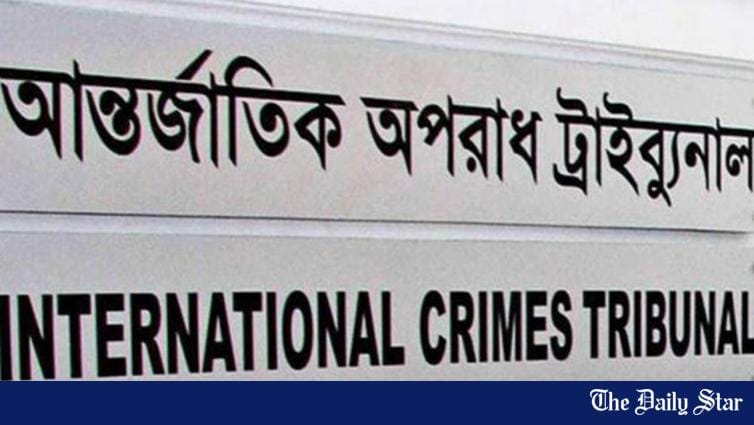Saif
Senior Member
- Joined
- Jan 24, 2024
- Messages
- 17,104
- Likes
- 8,163
- Nation

- Residence

- Axis Group


Hasina can be prosecuted 'many times over' for 'crimes against humanity': ICT prosecutor
Tajul Islam, chief prosecutor of the International Crimes Tribunal (ICT), has said there is substantial evidence pointing to ousted prime minister Sheikh Hasina's involvement in the "mass killings" during the July Uprising. Speaking to several media outlets on Wednesday, he indicated that the inve
Hasina can be prosecuted 'many times over' for 'crimes against humanity': ICT prosecutor
Published :
Apr 02, 2025 21:57
Updated :
Apr 02, 2025 21:58

Tajul Islam, chief prosecutor of the International Crimes Tribunal (ICT), has said there is substantial evidence pointing to ousted prime minister Sheikh Hasina's involvement in the "mass killings" during the July Uprising.
Speaking to several media outlets on Wednesday, he indicated that the investigation reports on Hasina, along with former home minister Asaduzzaman Khan and former police chief Abdullah Al-Mamun, are nearing completion.
"The investigation reports on the key accused Hasina and her associates are almost done. We expect to receive these reports in the first half of April," Tajul said.
He added that upon receiving the reports, the prosecution would proceed with formal charges, reports bdnews24.com.
Hasina is being tried under the doctrine of "command responsibility" for alleged genocide during the student-led mass uprising that toppled her government last year.
Hasina has been charged with “genocide” during the July Uprising at the ICT.
Tajul had said before Eid that the investigation report was in its final stages.
The tribunal gave the investigation agency until Apr 20 to submit the report.
"With the substantial and irrefutable evidence we have, it is possible to prove the charges against them multiple times over. We are confident in presenting this evidence in the courtroom," the chief prosecutor said.
Tajul highlighted that the evidence includes testimonies from witnesses and victims who were on the front lines during the incidents in question.
"These witnesses will provide such compelling testimony that there will be no legal loopholes for anyone to escape. We are confident in successfully proving the charges against them," he added.
On Oct 17, the ICT issued arrest warrants against Hasina and 45 others, including her close aides, on charges of crimes against humanity linked to a student-led uprising in July and August.
Published :
Apr 02, 2025 21:57
Updated :
Apr 02, 2025 21:58
Tajul Islam, chief prosecutor of the International Crimes Tribunal (ICT), has said there is substantial evidence pointing to ousted prime minister Sheikh Hasina's involvement in the "mass killings" during the July Uprising.
Speaking to several media outlets on Wednesday, he indicated that the investigation reports on Hasina, along with former home minister Asaduzzaman Khan and former police chief Abdullah Al-Mamun, are nearing completion.
"The investigation reports on the key accused Hasina and her associates are almost done. We expect to receive these reports in the first half of April," Tajul said.
He added that upon receiving the reports, the prosecution would proceed with formal charges, reports bdnews24.com.
Hasina is being tried under the doctrine of "command responsibility" for alleged genocide during the student-led mass uprising that toppled her government last year.
Hasina has been charged with “genocide” during the July Uprising at the ICT.
Tajul had said before Eid that the investigation report was in its final stages.
The tribunal gave the investigation agency until Apr 20 to submit the report.
"With the substantial and irrefutable evidence we have, it is possible to prove the charges against them multiple times over. We are confident in presenting this evidence in the courtroom," the chief prosecutor said.
Tajul highlighted that the evidence includes testimonies from witnesses and victims who were on the front lines during the incidents in question.
"These witnesses will provide such compelling testimony that there will be no legal loopholes for anyone to escape. We are confident in successfully proving the charges against them," he added.
On Oct 17, the ICT issued arrest warrants against Hasina and 45 others, including her close aides, on charges of crimes against humanity linked to a student-led uprising in July and August.







































